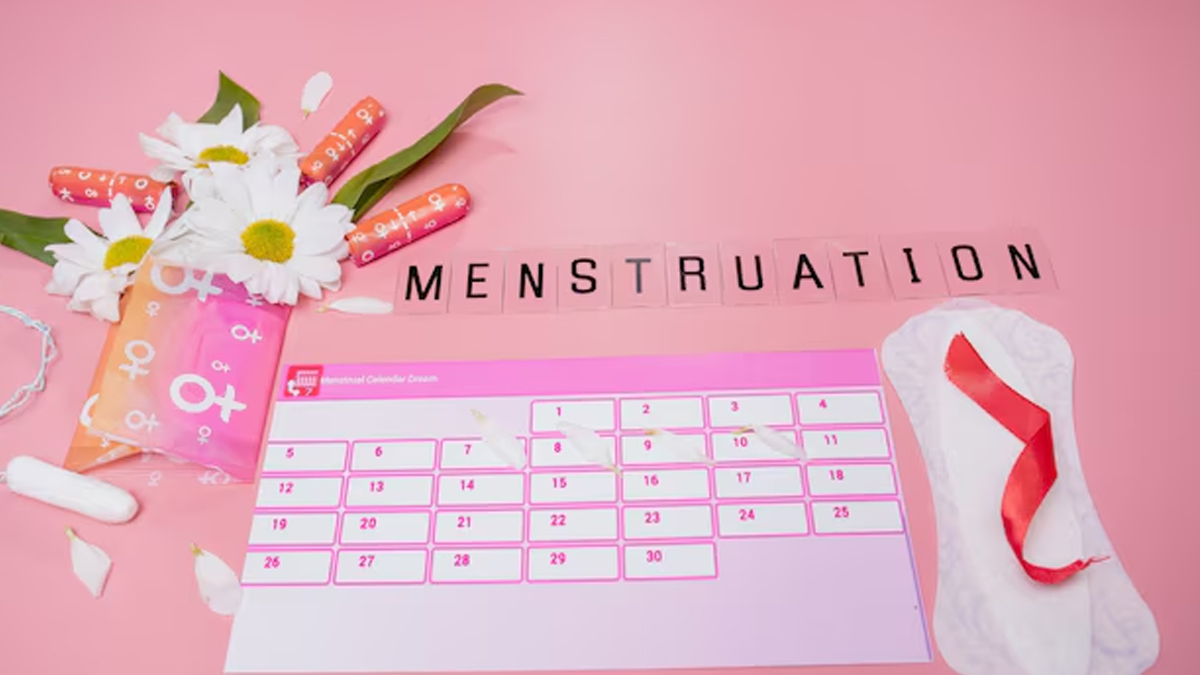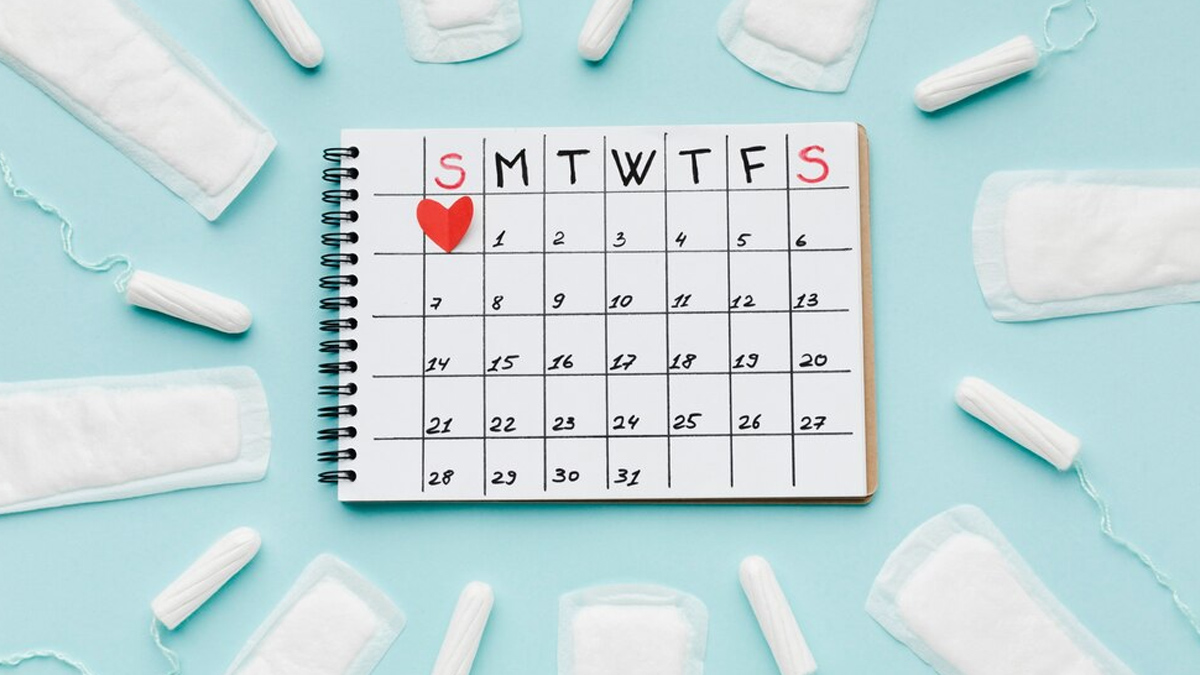
Periods, or menstruation, usually begin between the ages of 11 and 14, though they can occur as early as eight or as late as 16. Menstruation involves monthly vaginal bleeding as the body sheds the lining of the uterus. For those experiencing it for the first time, it can feel overwhelming and confusing. This is where awareness and open conversations become crucial, helping individuals navigate both the physical and emotional challenges of this new phase of life. It is important that parents support their menstruating children through this new experience and make them feel as comfortable about it as possible. To help ease your task, here are a few conversation starters and important lessons you can give to your child as they start their menstrual journey.
Table of Content:-
Also Read: How Menstrual Symptoms Change In Your 20s, 30s, And 40s
Menstruation Is Natural; What To Expect

The most important thing to tell your child and to make them understand is that menstruation is natural. It is a biological process that marks reproductive maturity and is characterised by the shedding of the uterine lining when a pregnancy does not occur. According to a UNICEF article, over 100 billion people across the world menstruate every month.
Along with vaginal bleeding, menstruation may bring other changes, such as cramps, mood swings, fatigue, and bloating. While these symptoms are normal, they can feel overwhelming, especially for first-timers. Understanding what to expect, maintaining good hygiene, and having open conversations can help manage this transition with confidence and ease.
‘Menstrual Hygiene Impacts Reproductive Health’

In an interaction with the OnlyMyHealth team, Dr Ajeet Kumar Srivastava, VP - R&D & Compliances, Pee Safe, emphasises the importance of maintaining menstrual hygiene. He says, "Menstrual hygiene plays an essential role in women’s health, yet for many, access to safe and effective menstrual hygiene products is limited. A significant lack of awareness around menstrual health and its effects can lead to conditions like endometriosis and Pelvic Inflammatory Disease (PID), which impact the reproductive health and quality of life of countless women globally."
Unfortunately, an estimated 50 crore women and girls worldwide lack access to adequate menstrual products and facilities, putting them at risk for infections and long-term health complications, according to the World Bank.
Additionally, the World Health Organization (WHO) indicates that menstrual health education remains inadequately addressed in schools worldwide, with only 2 out of 5 schools (39%) offering such education. The disparity is even more pronounced between primary and secondary education levels. For instance, in Central and Southern Asia, 84% of secondary schools provide menstrual education, compared to just 34% of primary schools.
Given this disparity, it becomes important for parents to take the lead in educating their children about menstrual health and hygiene from an early age. Breaking the stigma and initiating open, honest conversations can empower children with knowledge, confidence, and the ability to manage this natural process effectively.
Also Read: Expert Debunks Why Girls Get Early Periods These Days
All About The Different Types Of Menstrual Products
Accessibility to menstrual products is a fundamental right, yet it remains a challenge for many. Several women and girls worldwide lack access to essential menstrual hygiene products, which in turn affects their health, education, and overall dignity.
Additionally, many aren't aware of their options as conversations are limited. Menstrual products come in various types, including sanitary pads, tampons, menstrual cups, period panties, and biodegradable options. However, many individuals cannot afford them or do not have adequate facilities to use them safely.
How can this be made possible? The answer is simple, but the path is complex. It begins by making these products affordable and available but also addressing cultural stigma, providing education, and improving sanitation infrastructure to enable safe and dignified menstrual management for all.
Menstrual Products Should Be Changed Frequently

When it comes to menstrual health and hygiene, changing menstrual products frequently plays a crucial role. And it is something that should be communicated with young girls who are just beginning their menstrual journey.
According to Dr Srivastava, it is important to change pads and tampons every 4–6 hours. This is because bacteria and fungi grow in warm, moist environments, so prolonged use of menstrual products can allow them to multiply. Moreover, unlike pads, tampons are disposable menstrual products inserted into the vagina to absorb menstrual blood internally. This makes it even more crucial to change tampons frequently.
Menstrual cups, however, can be changed after 6–8 hours or can be used for up to 12 hours, depending on the flow.
Unusual Menstrual Symptoms Should Not Be Ignored
Dr Srivastava advises, “If you experience unusual symptoms such as fever, pain, or abnormal discharge, consult a healthcare professional, as early intervention can prevent complications.”
However, due to a lack of awareness and the stigma surrounding menstruation, many women and young girls hesitate to discuss menstrual discomfort or unusual complications. This silence can have serious long-term health consequences, putting their well-being at risk.
Therefore, educating young girls about menstrual health is crucial, while emphasising the importance of recognising and addressing unusual symptoms promptly. Open conversations and awareness can empower them to seek timely medical advice, safeguarding their health and breaking the cycle of stigma.
Open Conversation Is Key
Dr Srivastava shares, "The lack of awareness and access to menstrual hygiene products leaves millions vulnerable to infections and long-term health conditions... The commitment lies in empowering women through safe, effective, and affordable menstrual hygiene products."
Hence, it is crucial for parents to provide menstrual health education to their children, regardless of whether they menstruate or not. This creates awareness about menstruation, helps break societal taboos, and highlights the potential health challenges of neglecting menstrual hygiene and care. Such conversations encourage both understanding and empathy.
Also watch this video
How we keep this article up to date:
We work with experts and keep a close eye on the latest in health and wellness. Whenever there is a new research or helpful information, we update our articles with accurate and useful advice.
Current Version